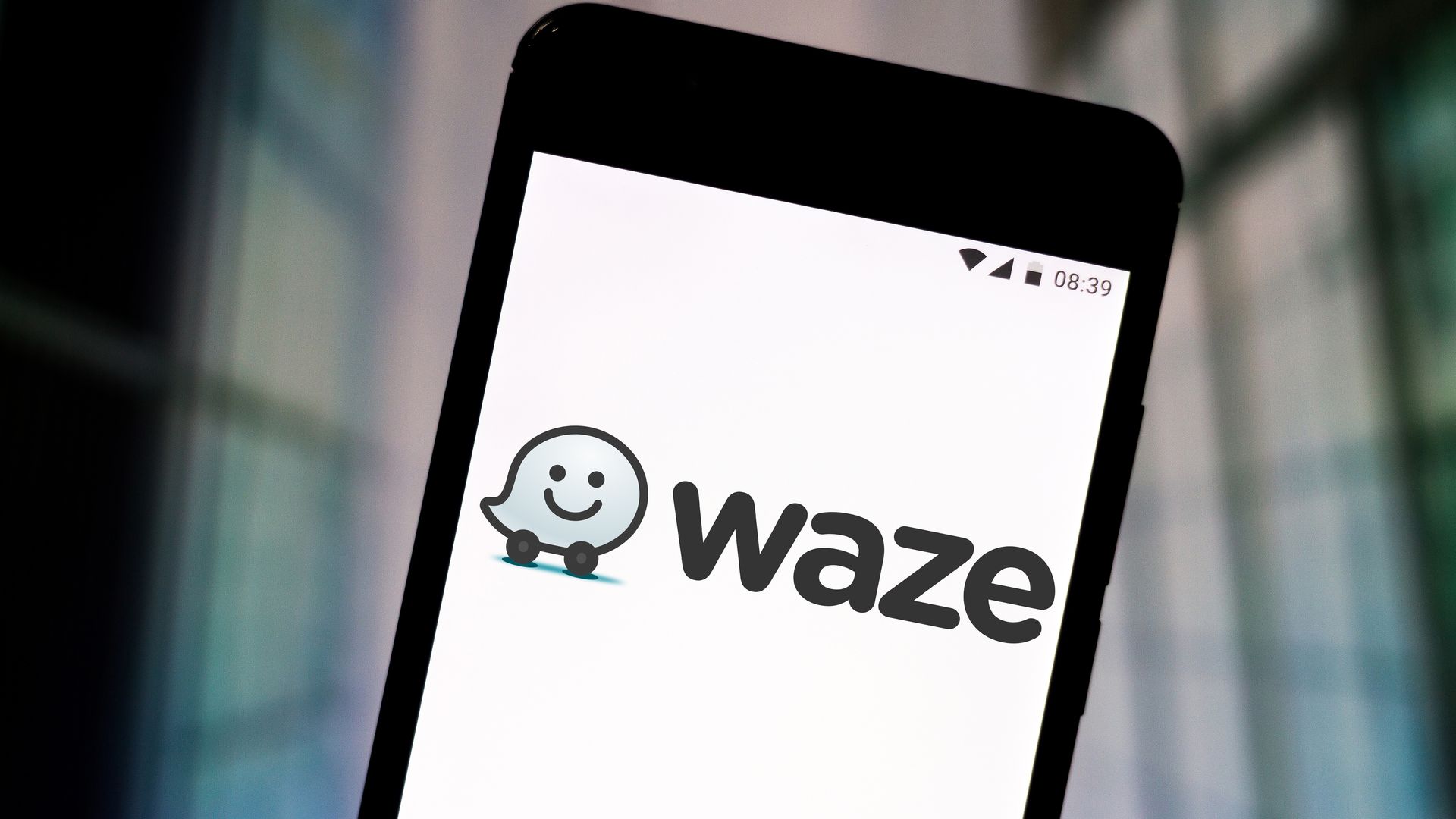Catching up with Waze's carpool app
Add Axios as your preferred source to
see more of our stories on Google.

Photo Illustration: Rafael Henrique/SOPA Images/LightRocket via Getty Images
Waze is best known for its navigation app, which crowdsources traffic information, but a few years ago it ventured into a new line of business when it rolled out a carpooling app. Today, the Google-owned company says its U.S. carpool users complete more than 550,000 rides per month, and will reach the 1 million mark by the end of the year.
What they're saying: "We’re not taking on Uber and Lyft," Waze co-founder and CEO Noam Bardin tells Axios. "We're focused on commutes 20 miles and up." Waze drivers also can't earn money beyond the cost of driving (per IRS guidance of $0.58 per mile).
- "Our mission has always been about traffic — people have accepted traffic as a necessary evil, but it’s not," he adds.
- After initial pushback from cities, including attempts to regulate Waze's carpool offering like a ride-hailing app and even some cease-and-desist orders, they've come around. It's now available in the U.S., Mexico, and Brazil.
Lesson: "Once [users] take their first ride, they discover that humans are actually interesting," says Bardin. But to do that, they need to first trust the service and other users.
- The company has also added various filtering options for users, such as only being matched with the same gender or with employees at their company, to help them feel more comfortable carpooling.
Monetizing: Right now, Waze doesn't generate revenue from the carpooling app. But it does plan to eventually take a cut from the ride fares and even possibly integrate some advertising, which it already does in its flagship navigation app.
- Still, Bardin emphasizes that it's mainly looking to cover its costs.
Yes, but: Speaking of advertising, Bardin also tells Axios that the company doesn't share any carpool user data with its parent company, Google, beyond data about the roads themselves.
- He also says that the company also declines to share user or trip data with cities —an increasingly controversial topic as a growing number of cities seek to mandate that private transportation companies share data in exchange for the ability to operate. "They want data and they don't know why they want it," said Bardin.
Autonomous vehicles: "They're coming slower than you think," says Bardin.
- And if autonomous vehicles will be used via ride-hailing services, as some experts envision, Waze says it's helping people get more used to sharing rides, he adds.
Biggest challenge: Density. In order to work, Waze's carpool service needs to have drivers and riders who live sufficiently close to each other and are heading in a similar direction.
